Daily Business Report-Dec. 10, 2020
Rendering of the Workforce Development Accelerator and Community Arts & Culture Innovation Center.
Federal tax credit funds will help establish
workforce development accelerator
and innovation center in East Village
Three community development entities are using a federal tax credit program to invest $36 million into a Workforce Development Accelerator and Community Arts & Culture Innovation Center in East Village that would give low-income residents the opportunity to achieve academic certificates and well-paying jobs through UC San Diego Extension.
The East Village building at the corner of Park Boulevard and Market Street would be acquired and renovated for the center. Total project acquisition, tenant improvements and financing costs amount to approximately $65 million.
The federal New Markets Tax Credit investment of $36 million was obtained by the Civic San Diego Economic Growth and Neighborhood Investment Fund, the Border Communities Capital Company, and TELACU. The program, established by Congress in 2000, permits individual and corporate taxpayers to receive a credit against federal income taxes for making equity investments in vehicles known as Community Development Entities (CDEs). The CDEs in turn use the capital raised to make investments in low-income communities.
The 66,000-square-foot facility will be managed by UC San Diego Extension. “After years of researching and partnering with business, technology and medical industry leaders across San Diego, I couldn’t be more excited about Extension’s expanding role as UC San Diego’s public facing community educator,” said Mary Walshok, who has been dean of UC San Diego Extension for 40 years. “This project is an affirmation of UC San Diego’s commitment to be a vital resource within the community as San Diego maintains its status as one of the most enviable places to live and work in the world.”
The project is expected to serve thousands of students and local community members annually.
“This project gives residents of the San Diego Promise Zone and beyond access to UCSD’s programs and will provide unemployed and underemployed community members the opportunity to achieve academic certificates and well-paying jobs on an accelerated basis,” said Andrew Phillips, president of Civic.
_________________________________________________
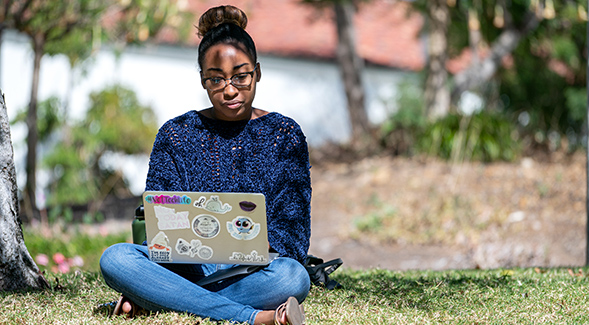
SDSU expands research resources
through consortium of libraries
Membership in center makes a repository of unique
and diverse international collections available to scholars
San Diego State University is now a member of the Center for Research Libraries(CRL), a prestigious international consortium of university, college, and independent research libraries.
Membership in the consortium opens up vast new resources for research and teaching, especially in the humanities, sciences, and social sciences, and provides essential support for the growing research enterprise at SDSU.
CRL maintains deep and diverse collections of primary source material beyond those available in most individual libraries and promotes collaboration among institutions to ensure those collections nurture innovation in teaching and research. CRL collections and services are shaped by experts who work together to identify and preserve unique and uncommon materials and to ensure their long-term integrity and accessibility to researchers worldwide.
Primary source materials are available in both digital and printed formats and include approximately five million newspapers, journals, books, pamphlets, dissertations, archival materials, government publications, and other resources beyond what is currently available through the SDSU Library.
_________________________________________________
Illumina, Harvard Pilgrim Health Care
sign risk-sharing deal for whole-genome sequencing
Illumina and Harvard Pilgrim Health Care announced a risk-sharing agreement that will make whole-genome sequencing (WGS) available to certain Harvard Pilgrim patients beginning Jan. 1, 2021.
Under the terms of the deal, Harvard Pilgrim will cover WGS, through its network of lab providers, for pediatric patients meeting specific criteria. Illumina and Harvard Pilgrim will share the risk on genetic testing costs.
“Illumina guarantees that Harvard Pilgrim’s average genetic testing costs for these complex patients will not increase compared to the baseline,” an Illumina spokesperson said in an email. “In fact, Illumina has significant skin in the game: if Harvard Pilgrim’s average genetic testing cost increases compared to an agreed-upon baseline, Illumina will reimburse Harvard Pilgrim up to an agreed-upon cap.” The baseline and cap amounts, among other financial details, were not disclosed.
Together, Harvard Pilgrim and Illumina will analyze the data, adjudicate the financials, and prepare a peer-reviewed study for publication evaluating how insurance coverage of WGS impacts patient care and healthcare costs.
_________________________________________________
San Diego’s Confirm BioSciences
acquired by Clinical Reference Library
San Diego-based Confirm BioSciences, a provider of comprehensive screening tools and solutions, announced that the company has been acquired by Clinical Reference Laboratory (CRL), one of the largest privately held clinical testing laboratories in the U.S.
Confirm will continue to operate as a subsidiary under its current name. The acquisition expands Confirm’s access to lab testing services and R&D capabilities, while CRL leverages Confirm’s massive customer base in Drugs of Abuse testing, large consumer-based retail contracts and current pipeline of COVID-19 testing products.
“We’re so excited about joining the CRL family,” said Confirm CEO Albert Berger. “While partnering with CRL on recent projects, we developed a great relationship, and becoming part of the CRL organization will allow the Confirm BioSciences team to focus on the services we provide to our customers while expanding our capabilities. It will be business as usual, but with even more firepower.”
_________________________________________________
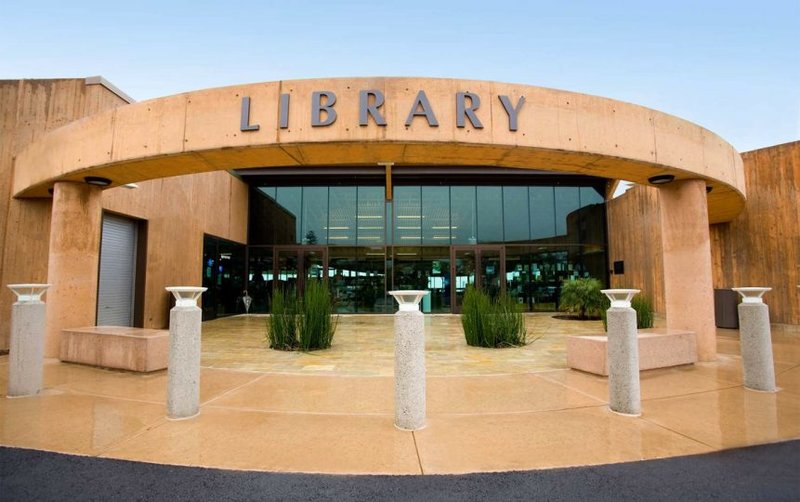
County libraries move to door-side service
With the state’s new COVID-19 Stay Home order in effect, the County of San Diego’s 33 libraries have moved to door-side service to help county residents practice social distancing and still enjoy all the library books, digital magazines, music, movies and other fare they love.
People can still check out all library materials and safely pick them up right at their library’s door. No appointments are necessary.
Just use the county’s online catelogor call your local branch to find and request the book, CD or movie you’re looking for. When your items are ready, you’ll be notified by email, phone call or through the mail. You can then pick up your materials up at your library’s door-side pickup area between the hours of 10 a.m. and 4 p.m. Mondays through Fridays.
County Library Director Migell Acosta said library patrons can still digitally access all the library’s e-books and e-magazines around the clock — 24 hours a day, seven days a week — by downloading the Libby app for e-books, audio books and e-magazines.
_________________________________________________
San Diego County Regional Airport Authority
releases annual sustainability report
The San Diego County Regional Airport Authority has released the organization’s 2019-2020 Sustainability Report which can be viewed at sustain.san.org. The Sustainability Report serves as a useful barometer for San Diego International Airport’s relationship to the environment, the traveling public, its stakeholders and the greater San Diego community.
“This annual report re-affirms our commitment to continuous improvement and transparency in social, economic, and environmental performance, which has been especially important as we respond to the COVID-19 pandemic,” said Kimberly Becker, Airport Authority President and CEO. “In so doing, we recognize and celebrate our accomplishments, as well as emphasize areas where we can make improvements.”
_________________________________________________
San Diego Women’s Chorus hires 2 new staff members
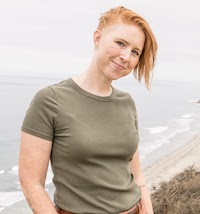
The San Diego Women’s Chorus (SDWC) has hired two new staff to the organization’s artistic and administrative team.
Lara Korneychuk joins the artistic team as the new assistant to the artistic director with nearly a decade of experience, and Meghan Grogan is the first hire in the newly created position of assistant to the board of directors.
After over four years, Celeste Oram is stepping down from SDWC’s assistant to the artistic director position to complete her Ph.D. in Music Composition at UCSD.
Korneychuk will support Kathleen Hansen, the artistic director of the organization since 2014, in leading chorus rehearsals, supporting musicianship, and producing performances. Korneychuk has held a similar role as Assistant Conductor for SACRA/PROFANA in San Diego since 2017.
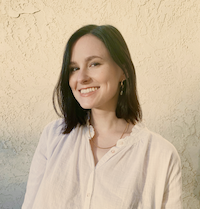
Meghan Grogan joined SDWC as it’s very first paid administrative staff person earlier this fall. As assistant to the board, Grogan serves as a multifunctional aide to the chorus.
She works closely with the board to streamline marketing pursuits, document chorus procedures, support membership and all archiving efforts.
She will also help execute the board’s vision for the future and use her artistic background to enhance the chorus’s digital presence.
_________________________________________________
Nanoengineer Liangfang Zhang inducted
into National Academy of Inventors
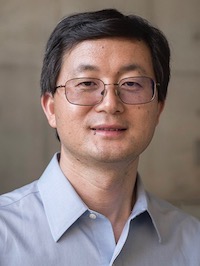
Liangfang Zhang, professor of nanoengineering and director of the chemical engineering program at the UC San Diego Jacobs School of Engineering, has been named a 2020 fellow of the National Academy of Inventors (NAI).
Zhang is recognized for his revolutionary work in the field of nanomedicine, which focuses on nanomaterials for medical applications.
He invented a way to make nanoparticles perform therapeutic tasks in the body without being rejected by the immune system.
_________________________________________________
Reneo Pharmaceuticals raises
$95 million in Series B financing
Reneo Pharmaceuticals, Inc. announced it raised $95 million in a Series B financing co-led by Novo Ventures and Abingworth and supported by existing investors New Enterprise Associates, RiverVest Venture Partners, Pappas Capital, and Lundbeckfonden Ventures, as well as new investors Rock Springs Capital, Aisling Capital, Amzak Health, and other investors. Reneo is a clinical stage pharmaceutical company focused on the development of therapies for patients with genetic mitochondrial diseases.
Reneo also announced the appointment of Gregory J. Flesher as president, chief executive officer, and a member of the Board of Directors. Flesher has more than 25 years of biopharmaceutical industry experience, including senior leadership roles at Novus Therapeutics, Avanir Pharmaceuticals, Intermune, Amgen, and Eli Lilly and Company
_________________________________________________
Salk neuroscientists receive
$4.4 million for NIH BRAIN Initiative
Salk Institute neuroscientists Edward Callaway, Sreekanth Chalasani, and Nancy Padilla Coreano have been named recipients in the 2020 round of grants from the National Institutes of Health (NIH) to gain new insights into brain function.
The grants, totaling $4.4 million, are awarded through the BRAIN Initiative, as part of a large effort to use knowledge about how the brain works to develop more effective therapies for neurological disorders. Additionally, the BRAIN awards support scientific teams in order to advance neurotechnologies and provide a deeper understanding of the link between brain function and behavior.
Edward Callaway, a professor in the Systems Neurobiology Laboratory, was awarded two BRAIN grants totaling $1.6 million to explore the organization and function of multiple types of neurons involved in function of the cerebral cortex.
Sreekanth Chalasani, an associate professor in the Molecular Neurobiology Laboratory, was awarded a $2.6 million grant to investigate the use of ultrasound waves to control specific neuronal cells in mouse brains, a system that would be useful for reversing electrophysiological and behavioral deficits seen in epilepsy, for example.
Nancy Padilla Coreano, a senior postdoctoral fellow in the lab of Salk Professor Kay Tye, was awarded a $123,390 grant to study how the brain represents social dominance. seen in psychiatric disorders.



